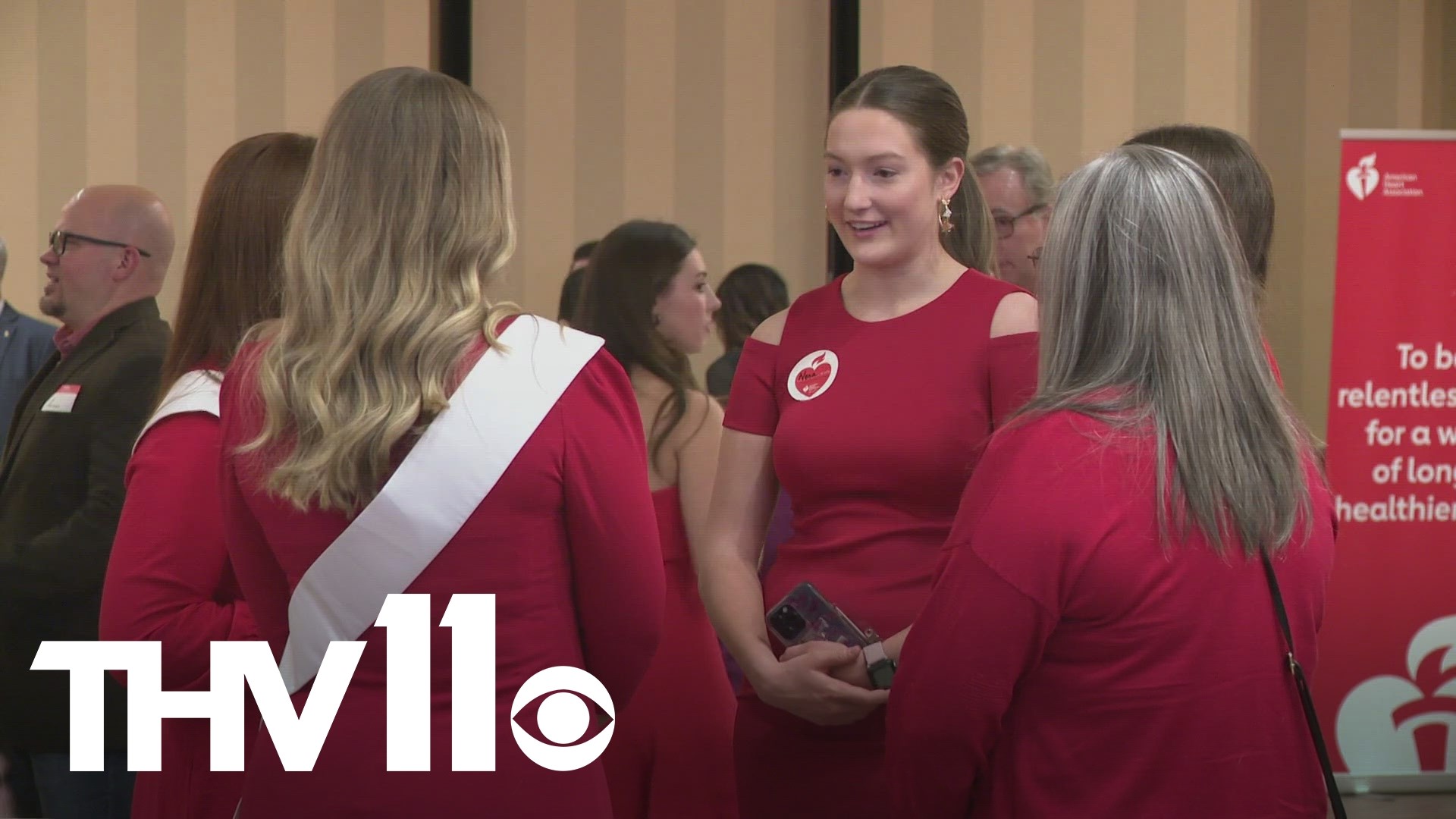LITTLE ROCK, Ark. — For 100 years, the American Heart Association has been helping women with cardiovascular health. Arkansas is also one of the states at the forefront of research.
In 1990, Jean McSweeney researched the symptoms of heart attacks in women. While men typically have chest pain, women experience a heart attack much differently.
"They have shortness of breath," McSweeney said. "This unusual fatigue, they get nauseated, they may vomit, [and] get light headed."
McSweeney said she almost didn't get the grant funding because donors wanted men included in the study.
"I said we knew a lot about men and heart attacks, but we didn't know anything about women in heart attacks," McSweeney said.
Additionally, McSweeney said there are a lot of women who will experience atypical symptoms with cardiovascular disease.
When Jessie Bennett had a stroke, she developed extreme fatigue and struggled with her words.
"It's certainly not something I would have to deal with at 38," Bennett said. "I'm thankful the journey has led me here."
That place is the American Heart Association.
For a century, the association has helped women understand how vital cardiovascular health is since it's the leading cause of death.
Nikki Smith is the executive director of the American Heart Association chapter in Arkansas.
She told us that 40% of women in the state who have high blood pressure are not managing it, which is one of the most significant risks of heart disease.
"We need to know our numbers," Smith said. "What's our blood pressure? What's our cholesterol? Those lipid numbers. We need to know all of those things so we can take care of ourselves."
Since McSweeney's research was published in the 1990s, it's been used worldwide, helping women globally get the heart care they need.
"We've developed an instrument of the symptoms that women have," McSweeney said. "It's been translated to about 40 different languages."
$1.2 million of research for the American Heart Association is currently happening in Arkansas. It's being done at UAMS.

